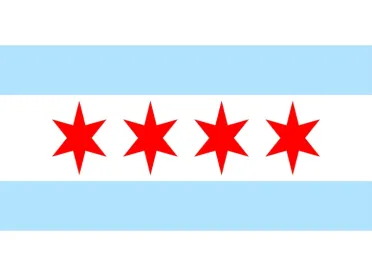The City of Chicago has passed a bill that will require Chicago employers to provide to full-time and part-time employees at least five days of paid sick leave per year. Employers have time to conform their policies and practice to the new law, as it will not take effect until July 1, 2017.
Chicago joins some 20 other municipalities, including New York and San Francisco, that have passed similar laws. Here are the principal features of Chicago’s new law:
Employers Covered
Any employer who maintains a business facility within the geographic boundaries of Chicago and who gainfully employs at least one eligible employee must comply with the law.
Employees Covered
Any employee who works within the geographic boundaries of Chicago will be entitled to paid sick leave under the new law. Exclusions are limited and include certain employees in agriculture, outside salespersons, members of religious organizations, and any employee working in the construction industry who is covered by a collective bargaining agreement.
Requirements of the Law
Any employee working at least 80 hours within any four-month period (120 days) qualifies for paid sick leave. New employees must wait six months from the start of their employment to begin using paid sick leave, but employees begin accruing paid sick leave immediately upon hire. Employees will accrue one hour of paid sick leave for every 40 hours worked, so the total accrual in any 12-month period is five days of paid sick leave. Employers can limit employees' use of paid sick leave to minimum increments of at least four hours per day.
Carryover
Employees generally will be permitted to carry over up to 20 hours of unused paid sick leave from year to year. If the employer is subject to the Family Medical Leave Act (FMLA), employees will be permitted to carry over 40 hours of paid sick leave, but these carryover hours must be used exclusively for FMLA purposes such as a serious illness or to care for a newborn. If an employee leaves the employer, however, he or she is not entitled to a payout of accrued but unused sick leave.
Legitimate Bases for Using Paid Sick Leave
An employee has a right to use paid sick leave for any of the following reasons:
a. Illness or injury of the employee or a family member, including absences for receiving medical diagnosis, care, or treatment, or preventive medical care. A family member includes a child, spouse or domestic partner, parent, grandparent, grandchild, or any other person related by blood or with a close association with the employee that is the equivalent of a family relationship.
b. Absences related to the employee’s or employee’s family member’s status as a victim of domestic violence.
c. Closure of the employee's place of business or closure of the employee’s child’s school or place of care by order of a public official.
Employee Notice and Certification Requirements
Unless the need for sick leave is foreseeable, such as a planned doctor’s appointment, employees are not required to provide advance notice before using paid sick leave. Nor are employees required to find replacement workers to cover their shifts. Where an employee takes three or more consecutive days of paid sick leave, the employer may require reasonable documentation that the employee used paid sick leave for a permitted purpose.
Posting Requirement
Employers must post a notice advising employees of their right to paid sick leave. Such notice must be posted in a conspicuous place at a job site located within the geographic boundaries of Chicago. The Chicago commissioner of business affairs will prepare a model notice for employers’ use. In addition, employers must advise employees of their rights under the law with the first paycheck issued after the law takes effect on July 1, 2017.
Employers with Existing Paid Time Off Policies
Chicago employers who already have paid sick time, sick leave, or paid time off policies should ensure that they meet the minimum requirements of this new law, including increments of use and carryover, no later than the legislation’s effective date.
Enforcement
The law gives an employee the right to file a civil action to recover three times the amount of any paid sick leave improperly denied, as well as interest on that amount, together with costs and reasonable attorneys’ fees.
Potential Effects for Employers
One alderman estimated that the new law may increase employment costs for Chicago employers by .7 to 1.5 percent. Business advocates opposed the legislation, expressing the view that it would drive up employers’ costs at a time when they will also face other city government-imposed business costs, including property taxes. Adding to those costs, the Chicago city council has also recently approved raising the city’s minimum wage incrementally to $13.00 per hour by 2019.




 />i
/>i

